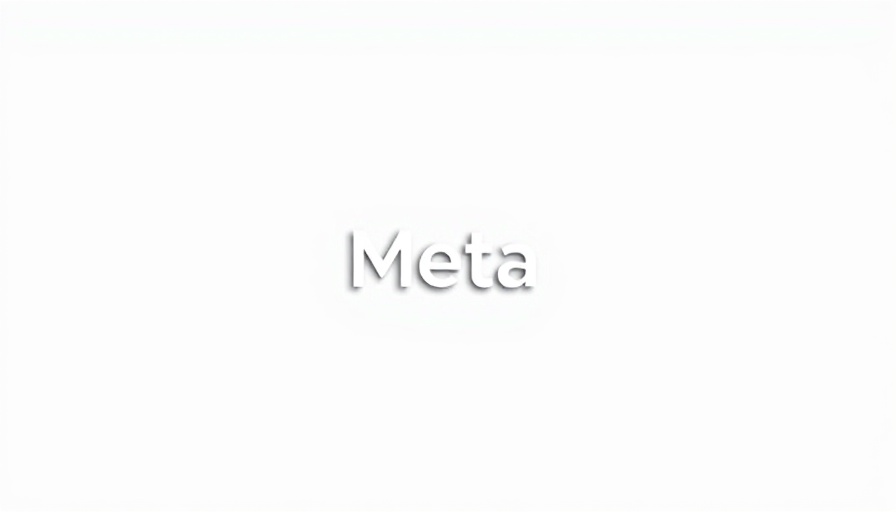
Meta Turns Off Political Ads: The New EU Playbook
In a bold move, Meta recently announced its decision to ban political advertising across Europe starting this October. This decision comes in response to new regulations introduced by the European Union, specifically the Transparency and Targeting of Political Advertising (TTPA) provision. As the policy rolls out on October 10th, many are left wondering what this means for users, advertisers, and the future of digital marketing in the region.
The Details of TTPA: Transparency at Its Core
The TTPA will mandate that all digital ad platforms disclose critical information regarding political ads, such as the source of funding and targeting methods. Essentially, this regulation aims to create a more transparent advertising landscape. However, it also imposes substantial compliance burdens on businesses like Meta. The TTPA stipulates that data used for targeting political ads can only be utilized if users give 'explicit and separate consent.' For advertisers, this complicates the intricate process of delivering targeted messages to specific audiences.
Meta's Frustration: A Complex Digital Maze
Meta expressed its dissatisfaction with these new regulations, arguing that they introduce an unmanageable level of complexity to their advertising systems. According to the company, this could lead to fewer relevant ads for users: "It is yet another threat to the principles of personalized advertising, ignoring the benefits to advertisers and the people they want to reach." Moreover, Meta has already struggled with ongoing penalties, reportedly spending over $1 billion annually due to EU infractions. Businesses fear that this unilateral approach could set a negative precedent for U.S. platforms operating abroad.
Impact on Advertisers: Navigating New Waters
For advertisers in Europe, the ban on political content means a significant shift in strategy. Marketers now need to rethink their approaches to outreach, especially if they rely on political and social issue ads. With the targeting options restricted, many fear they risk losing connections with their audiences. The implications of this decision resonate beyond just Meta; the entire landscape of digital advertising is now navigating a precarious and rapidly evolving environment.
The Broader Implications: A Digital Advertising Struggle
The challenges posed by the TTPA reflect a larger struggle within the digital advertising ecosystem. Analysts have pointed out that many platforms are already faced with the costly task of complying with existing regulations. As companies adapt and innovate to meet these new frameworks, it remains uncertain how they will sustain profitability while also delivering relevant content for users.
Future Predictions: The Landscape Ahead
As we look toward the future, experts speculate that these regulations may lead to a push for more robust advertising alternatives—potentially encouraging advertisers to explore less regulated platforms, diversifying their marketing strategies. Innovations in user consent mechanisms and privacy-centric marketing could emerge as pivotal themes.
Conclusion: Adapting to Change
As Meta and other digital platforms grapple with the intricacies of EU regulations, advertisers too must remain adaptable. Emphasizing transparency and user consent might pave the way for a new marketing ethos that aligns with both regulatory standards and user expectations. For now, it’s clear that keeping abreast of these developments will be essential for advertisers navigating this turbulent terrain.
Engaged marketers and tech enthusiasts should stay informed and explore adaptive strategies in response to these legislative shifts. As the landscape of social media marketing evolves, those businesses that can innovate amid disruption will lead the charge in today’s digital age.
 Add Row
Add Row  Add
Add 




Write A Comment